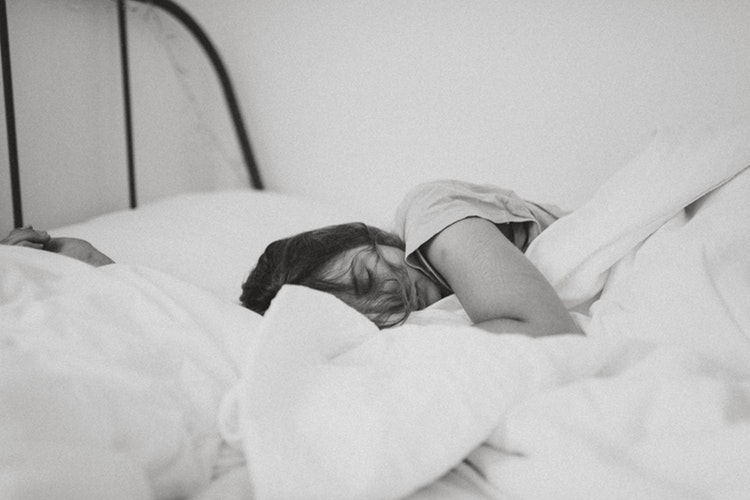Sleep research is on the rise, as medicine and psychology have now hi-tech instruments to learn more about this necessary part of our lives. Recent studies conducted by the American Academy of Sleep Medicine show that, unfortunately, 30% of adults reported they experienced insomnia.
How to Overcome Insomnia?
Moreover, according to Harvard reports, women tend to experience insomnia more often than men do. However, Harvard scholars say that it is a myth that people need less sleep as they age. They say older people may sleep less due to other causes. When it comes to older women, we have, fortunately, plenty of methods to overcome insomnia and we will discuss them as follows.
-
Make a Sleep Routine and Follow It

Not so long ago, we offered some tips on how to fall asleep fast and easy. One of those tips referred to making a sleep routine and following it, no matter how hard it seems at the beginning. Science agrees with us. A sleeping routine is necessary to help your body and mind adjust to the new condition.
Go to bed at the same hour and wake up at the same hour, even on weekends. You will be surprised how fast you will adapt to the routine. Just remember to keep it for as long as you can. If you go to bed but cannot sleep, do not toss and turn only to get frustrated. Go out of the bed and do the most boring thing possible, then return to bed and sleep.
-
Change Your Mattress

Older women tend to develop symptoms of osteoporosis and other bone and muscular problems. For this reason, the best hybrid mattress to keep their bodies comfortable and ease the pain is one of the first steps to take to get quality sleep.
Some of the best mattresses for the elderly feature designs and materials that prevent pinch points, allow for better body heat distribution, offer comfort and support, prevent odor building in the fibers, and are extremely durable.
If you have a lighter sleep as you get older, a high-quality mattress that does not accumulate dust, allergens, and mites is the perfect choice to prolong your sleep and allow you to rest.
-
Get Some Exercise

Women have active lives all the time, no matter if they are still working or enjoying the first days of retirement. An active life, however, does not mean you will get a good night’s sleep. Doctors and sleep researchers recommend women to keep their schedules as they want but introduce some physical exercise as well – at least four hours before bedtime.
As we grow old, our bodies need specific exercises so we can prevent damage to our bones and muscles. Moreover, routine physical exercise is great to get a good night’s sleep – but not right before bedtime, as it activates you instead of sending you to dreamland.
Some of the best exercises for older women are the ones that also have preventative and alleviating effects of osteoporosis, diabetes, arthritis, back pain or depression. You can try 20 minutes of cardio or strength training every day. Boosting your metabolism, fighting against age, and improving your physical and mental shape will also help you get some good sleep at night.
-
Mindful Meditation

Mindful meditation is more than a technique to help people sleep better, but also to prevent burnout in working adults and solve many problems in people of all ages. Recent studies show that mindful meditation works even better for insomnia in the elderly than sleep hygiene.
Other studies (from Brown University) show that women benefit more from mindful meditation than men do. Women should not dismiss the idea that such techniques can help you achieve mental balance. Also, they tend to your emotions and stress and get a good night’s sleep as a consequence of the “silence” you brought to your mind and soul.
Of course, you can spin things a little. Mindful meditation may prove to be less effective for you. However, you should not give up the concept of stress relief. You can try yoga, Tai Chi or other relaxation techniques instead.
-
Cognitive Behavioral Therapy

When we get older, everything changes, from the way our bodies work to our problems. If your insomnia does not come as a symptom of a health problem, then you may need to reframe your thoughts and the factors that lead to stress or unhealthy behavioral patterns. CBT proved repeatedly to work well for insomnia, depression, and anxiety.
Mixing therapeutic techniques of reframing negative thoughts, relaxation techniques, sleep-improving behavioral techniques, sleep journals, and more, CBT can help you regain your restful sleep.
Do you know other tips to get a good night’s sleep? What other methods do you use to fight against insomnia?







